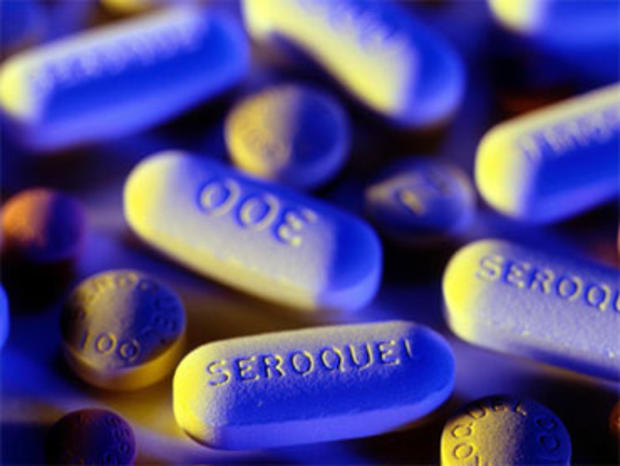AstraZeneca Reaches $520 Million Settlement
Today, the federal government announced a $520 million dollar settlement with AstraZeneca in a case that accused the pharmaceutical company of promoting an antipsychotic drug for unapproved uses.
The drug is Seroquel, and is intended for patients with certain forms of schizophrenia and bipolar disorder.
However, the government accused AstraZeneca of widely promoting Seroquel for off-label uses such as other psychiatric conditions and insomnia. It was in part due to this widespread off-label use that Seroquel became AstraZeneca's second best-selling drug last year, bringing in $4.9 billion.
Philadelphia attorney Stephen A. Sheller tells CBS News the AstraZeneca case is the largest civil penalty ever imposed by the Department of Justice involving a single drug.
While doctors are legally allowed to prescribe drugs for off-label use, drug companies are only supposed to market their medicine for FDA-approved uses.
A key aspect of the settlement is that the company has not admitted to wrongdoing. "While we deny the allegations, AstraZeneca takes its obligations very seriously under its agreements with the government" said Glenn Engelmann, AstraZeneca's U.S. General Counsel in a statement today. "It is in the best interest of AstraZeneca to resolve these matters and to move forward with our business of discovering and developing important, life-changing medicines - while avoiding the delay, uncertainty, and expense of protracted litigation."
The claims in the Seroquel case are similar to those outlined in an exclusive CBS News Investigation last year regarding another drug: Risperdal. Like Seroquel, Risperdal is only approved for certain patients: primarily adult patients who are psychotic, and for very limited pediatric use. However, it is in practice widely prescribed to children for less severe psychoses and disorders such as Attention Deficit Disorder and autism.
Critics say one of the problems with prescribing drugs for off-label use is that less may be known about their effects and side-effects. Problems may go misdiagnosed or unrecognized. In the case of Risperdal, there have been documented cases of boys developing women's breasts while taking the drug. Some of those boys have also reported a change in their sexual identification from male to female.
Sheller, a plaintiff's attorney who worked closely with the Department of Justice in the Seroquel case, claims the makers of Risperdal, Janssen, marketed the drug for unapproved uses in children and downplayed serious risks such as diabetes and seizures. He represents ten boys including one who was only four years old when he developed a breast on one side and began producing milk. Some of them chose to undergo radical mastectomies.
When we first reported this story, Janssen wouldn't agree to an interview, but told us that breast growth risk is "clearly stated in the FDA-approved" labeling, and that "we only promote our products for their FDA-approved indications."
Janssen's own clinical trials with just 1,885 children showed that 43 of them developed abnormal breasts.
Risperdal and other so-called "atypical anti-psychotics" have exploded in use. Hundreds of thousands of kids have been prescribed Risperdal in the 15 years it's been on sale. U.S. sales of Risperdal reached $1.3 billion in 2008. The case against Risperdal is still pending.
